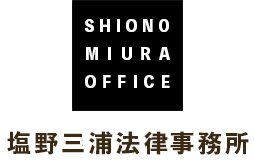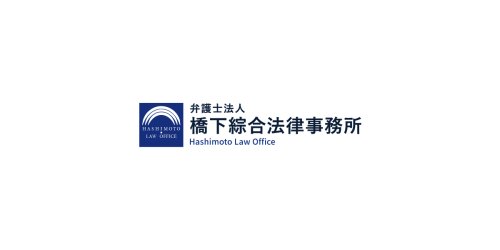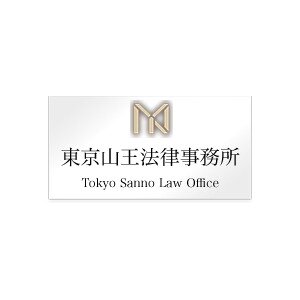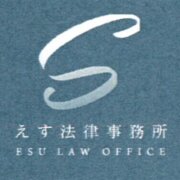Best Conveyancing Lawyers in Japan
Share your needs with us, get contacted by law firms.
Free. Takes 2 min.
Free Guide to Hiring a Real Estate Lawyer
Or refine your search by selecting a city:
List of the best lawyers in Japan
About Conveyancing Law in Japan
Conveyancing in Japan refers to the legal process of transferring ownership of real estate from one person or entity to another. Unlike some Western countries where a single legal professional handles most steps, the Japanese system typically involves licensed real estate agents along with judicial scriveners who officially register property transfers. The process is highly regulated to ensure accuracy and protect the rights of both buyers and sellers. Understanding the role each party plays and the required documentation is critical for a smooth transaction.
Why You May Need a Lawyer
The conveyancing process in Japan can be complex, particularly for foreigners and first-time buyers. Common situations where legal assistance is beneficial include:
- Navigating language barriers and understanding technical legal terms in contracts
- Reviewing and negotiating contracts to protect your interests
- Confirming property ownership and resolving title issues
- Ensuring compliance with Japanese property laws and avoiding expensive mistakes
- Managing inheritance issues involving property
- Responding effectively to disputes or claims by third parties
Local Laws Overview
The legal framework for conveyancing in Japan is governed by several pieces of legislation, mainly the Civil Code, the Real Estate Brokerage Act, and the Real Estate Registration Act. Key aspects include:
- All real estate transactions must be registered at the Legal Affairs Bureau for ownership to be officially recognized.
- Licensed real estate agents are required to provide an explanation of important matters (called juyo jiko setsumeisho) in writing before a contract is signed.
- Non-residents and foreigners can buy real estate in Japan with few restrictions, although extra steps may be necessary.
- Stamp duties, registration taxes, and other transaction fees must be paid during the conveyancing process.
- Judicial scriveners (shihoshoshi) are responsible for registering property changes and confirming the legal status of a property.
- Both parties are typically present at the registration, along with the scrivener, to verify identities and consent.
Frequently Asked Questions
What is the role of a judicial scrivener in Japanese conveyancing?
A judicial scrivener prepares and submits the necessary documents to the Legal Affairs Bureau, confirming the legality of the property transfer and registering the new ownership. They also check for encumbrances and other legal issues.
Can foreigners purchase property in Japan?
Yes, foreigners can buy property in Japan, with no specific restrictions. However, reporting obligations and additional verification steps may apply, depending on residency status.
Is it necessary to use a real estate agent?
It is not strictly mandatory, but using a licensed real estate agent can help ensure legal compliance, manage negotiations, and reduce the risk of fraud or misunderstanding.
What upfront costs should I expect when buying property?
Common costs include agent commission, stamp duty, registration tax, judicial scrivener fees, and possibly loan-related fees. These can total 3 percent to 8 percent of the property price.
When does property ownership officially transfer?
Ownership is officially transferred upon registration of the new owner's name with the Legal Affairs Bureau, rather than at contract signing or payment.
What documents are required for conveyancing?
Major documents include the sale and purchase agreement, proof of identity, property registration certificate, the official registry (toukibo), and payment evidence. The judicial scrivener will advise on specific details.
What is the juyo jiko setsumeisho?
This is a document provided by the seller's agent outlining all significant information about the property, such as defects, legal rights, utilities, and restrictions. It must be given before the contract is signed.
Are there any taxes on property transactions?
Yes, buyers typically pay registration and license taxes, stamp duties, and annual fixed asset taxes. Sellers may face income or capital gains tax on profit.
What should I do if a dispute arises during conveyancing?
Contact a qualified lawyer experienced in property law or a local bar association for assistance. Early legal intervention can protect your rights and help resolve issues efficiently.
How long does conveyancing take in Japan?
The process can take from several weeks to a few months, depending on the complexity of the transaction, title verification, and the speed of registration at the Legal Affairs Bureau.
Additional Resources
If you need further information or guidance, consider consulting the following resources:
- Japan Federation of Bar Associations (JFBA) - Provides referrals to qualified lawyers and legal guidance.
- Japanese Notaries Public Association - For notarization of documents.
- Legal Affairs Bureau (Homukyoku) - For questions about registration and property records.
- Local real estate associations and municipal government legal consultation desks.
- Judicial Scriveners Associations - For professional support with registration procedures.
Next Steps
If you are considering buying, selling, or transferring property in Japan, start by gathering all available documents about the property and your own identification. Consult with a licensed real estate agent, who can guide you through initial steps and introduce you to a judicial scrivener. For any doubts or if your situation is complex, contact a lawyer specializing in Japanese property law as early as possible. Taking these precautions will help ensure your transaction proceeds legally and smoothly, minimizing the risk of future problems.
Lawzana helps you find the best lawyers and law firms in Japan through a curated and pre-screened list of qualified legal professionals. Our platform offers rankings and detailed profiles of attorneys and law firms, allowing you to compare based on practice areas, including Conveyancing, experience, and client feedback.
Each profile includes a description of the firm's areas of practice, client reviews, team members and partners, year of establishment, spoken languages, office locations, contact information, social media presence, and any published articles or resources. Most firms on our platform speak English and are experienced in both local and international legal matters.
Get a quote from top-rated law firms in Japan — quickly, securely, and without unnecessary hassle.
Disclaimer:
The information provided on this page is for general informational purposes only and does not constitute legal advice. While we strive to ensure the accuracy and relevance of the content, legal information may change over time, and interpretations of the law can vary. You should always consult with a qualified legal professional for advice specific to your situation.
We disclaim all liability for actions taken or not taken based on the content of this page. If you believe any information is incorrect or outdated, please contact us, and we will review and update it where appropriate.
Browse conveyancing law firms by city in Japan
Refine your search by selecting a city.

















